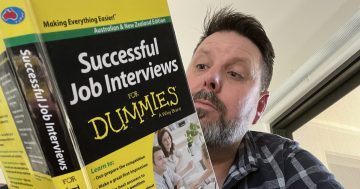Allison M. Vaillancourt* says many of the characteristics that make candidates appealing in the hiring process are not so useful when it comes to getting the job done.

Photo: Bob Bush Photo
Have you ever taken one of those implicit bias tests that assess your hidden prejudices about characteristics such as age, gender, weight, or skin tone?
As I reviewed the list of test options recently on Project Implicit, it occurred to me that the site was missing one that would be especially helpful: a quiz to assess our bias for charismatic leaders.
It would be interesting to test how much we value confidence over competence and how often we gravitate toward those who are charming, dynamic, and engaging — even when they are lacking in skills or intellect.
I will admit at the outset that my test results would reveal a strong preference for sparkly people.
I love confident speakers, bold thinkers, and gregarious conversationalists.
But over the course of my career, I have come to understand that many of the characteristics that make candidates appealing in the hiring process are often the same attributes that lead me to eventually be disappointed in their performance on the job.
It’s all too easy to gloss over the absence of substance when entranced by style.
Nailing a hiring process is not the same thing as nailing an actual job.
According to Tomas Chamorro-Premuzic, I am not alone in my bias for energetic personalities and my history of being tricked into hiring the wrong people.
His new book, Why Do So Many Incompetent Men Become Leaders? (And How to Fix It) , is less about incompetent men and more about how we tend to be dangerously mesmerised by charismatic people.
We are drawn to people who demonstrate high levels of self-assurance, make bold declarations, and discuss big plans.
It is only after we have worked with them for a while that the spell wears off and we discover that confident, big talkers are not always capable of delivering anything of consequence.
“There is a world of difference,” Chamorro-Premuzic writes, “between the personality traits and behaviours it takes to be chosen as a leader and the traits and skills you need to be able to lead effectively.”
This is not to say that we should reject all charismatic people — charisma is a valuable attribute.
But charisma is not required for every role, and it is certainly not the most important attribute for any position.
Our complex problems cannot be solved by blindly following a single individual.
We need multiple perspectives and inputs to deal with our most intractable challenges today.
Perhaps our proclivity to select charismatic leaders is an evolutionary drive that no longer serves us well.
Margarita Mayo, a researcher on leadership and organisational behaviour, has found that we turn toward charismatic leaders in times of great anxiety and uncertainty.
When things are difficult, we want to be “rescued” and offered easy fixes.
This is when we are most likely to seek out those who make lofty promises, appear to have superhuman abilities, or possesses the capacity to make us feel better about our situation.
It is time to think critically about the kind of people who are best positioned to help us navigate a very uncertain future.
We need more community building and less star power.
Organisational research repeatedly demonstrates that humble leaders produce better results than huge personalities because the former encourage collaboration and express appreciation for the contributions of others.
More humble leaders also are more likely to share honest information in times of distress.
Benjamin E. Hermalin, a Professor of Finance and Economics at the University of California, asserts that charismatic leaders are often tempted to substitute charm for action and to hide bad news to keep followers positively fired up.
When we are navigating complex times, we need more honest conversation, not less.
So, if we are naturally drawn to people who may not be good for us, how do we dodge their undue influence in the administrative-hiring process?
How do we break our tendency to lean toward charismatic applicants who may, in fact, be ill-equipped to deliver what we need?
Start by being aware of the personality characteristics that most appeal to us and how those traits may bias our assessment of a candidate’s intelligence, analytical abilities, and leadership skills.
Be more rigorous in assessing the credentials and qualifications of candidates.
We need to know much more about what they have done in the past, and not fixate on what they are promising to do in the future.
Also important: We need to learn more about how candidates approach complex challenges.
Do they have the stamina to endure hardship?
The intellectual bandwidth to engage in complex problem solving?
Are they interested in sharing credit?
Do they have sufficient humility to consider the perspectives of others?
Imagine, instead, asking candidates how they have handled (or might handle) a looming organisational crisis.
A tested, competent, community-building leader will generally describe plans to bring together thinking partners with varied perspectives, ask questions, assess the situation, consider multiple scenarios, and test various strategies.
An overly confident and charismatic leader will too often rely on instincts to guide the path forward and stress the value of unified action.
Because I know that I am drawn to captivating personalities, I make it a regular practice to admit it whenever I am asked to interview a candidate or serve on a search committee.
I’m not proud that I have to say that, but it generally starts an important conversation and allows us to probe deeply when we hear each other say things like, “She won me over immediately,” or, “I felt comfortable with him the minute he walked in the room.”
It is comments like those that often suggest that we are being played and that our unconscious bias may be encouraging us to choose style over substance.
* Allison M. Vaillancourt is Vice President for Business Affairs and Human Resources at the University of Arizona and a Professor of Practice in the University’s School of Government and Public Policy.
This article first appeared at www.chronicle.com.











